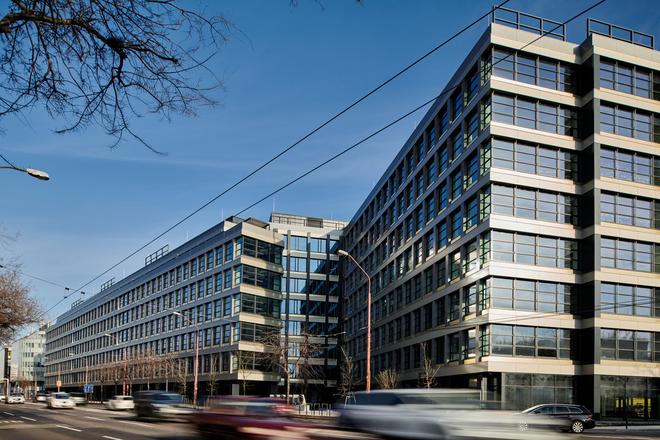Business and shared service centres in Slovakia, which support parent companies primarily in Western markets, had already embraced some degree of remote working before the Covid-19 pandemic.
But the crisis significantly accelerated the adoption of teleworking – commonly referred to as home office (HO) in Slovakia - reshaping working environments.
Key aspects of working comfort in open-space offices
Acoustic comfort – minimising noise and providing opportunities for focused work
Sufficient privacy – separate areas for phone calls or individual work
Ease of collaboration – spatial solutions that support both in-person and hybrid meetings
Opportunities for relaxation and socialising – spaces for rest and informal interaction that enhance employee well-being
Source: CBRE
“The most significant change, although this applies to other sectors too, has been a shift in the structure of office space,” Peter Grof, associate director and head of workplace design & architecture at CBRE in Slovakia, told The Slovak Spectator.
Work today is largely divided into two main types: individual work, which employees can do either in offices or at home; and teamwork, which is most effectively carried out in offices.
This is reflected in the design of offices at business and shared service centres.
But another factor which has determined the way offices are currently designed and equipped is the company’s desire to lure employees back into the office post-pandemic.
Hence, many are open 24/7, offer spaces to work both individually and collectively, and have areas for relaxation.
This means many now offer activity-based zones, free tea, coffee, fruit and even massages, gaming and chill-out areas, space for physical activities, and terraces.

“With fewer in-person interactions, the office plays a vital role in maintaining community and corporate identity, offering an engaging environment where employees feel connected,” Christian Schulz, President of Henkel Slovensko and Head of GBS+ Bratislava, told The Slovak Spectator. “It must also serve as a comfortable, well-equipped ‘home away from home’, providing ergonomic workspaces and advanced technology to enhance productivity.”


 IBM International Services Centre recently moved into new premises, Apollo Nivy. (source: HB Reavis)
IBM International Services Centre recently moved into new premises, Apollo Nivy. (source: HB Reavis)